What is PRP (Platelet-Rich Plasma)?
Platelet-rich plasma (PRP) is a cosmetic procedure that uses a small sample of your own blood to support the skin’s natural repair processes. PRP contains platelets, which carry growth factors that may help support tissue regeneration and improve skin texture over time.
PRP treatments are commonly used on the face or scalp to assist with skin quality, acne scars, or hair health. Individual results vary depending on factors such as skin type, age, and overall health.
How PRP Works
-
Blood Collection: A small amount of blood is taken from your arm.
-
Centrifugation: The blood is processed to separate the platelet-rich plasma from other components.
-
Application: The PRP is applied or injected into targeted areas of the skin or scalp.
During the procedure, you may feel mild discomfort such as a pinching or slight burning sensation. Numbing cream or other comfort measures can be used to reduce discomfort.
Potential Benefits of PRP
-
May support natural collagen and elastin production.
-
May assist with improving skin texture and appearance.
-
May help support hair follicle activity in some individuals.
-
Typically minimally invasive, with recovery times varying between people.
All outcomes are variable, and PRP is not intended to treat medical conditions or guarantee permanent results.
Considerations Before Treatment
-
PRP may not be suitable for everyone, including individuals with bleeding disorders, low platelet counts, or those undergoing certain medical treatments.
-
A consultation with a qualified practitioner is essential to determine suitability and tailor the treatment plan.
- Possible side effects include mild swelling, redness, bruising, or tenderness, which usually resolve within a few days.
What Is PRF?
Platelet-rich fibrin (PRF) is a newer version of PRP. It follows a similar procedure but uses a slower centrifuge spin, which retains more white blood cells and stem cells in the plasma. This can provide additional properties for skin and scalp health. Unlike PRP, PRF does not contain anticoagulants or other additives, making it a more natural option for some patients. This slower release of growth factors may offer longer-lasting effects, though individual results can vary.
Which Treatment Produces Better Results: PRP or PRF?
PRF is an advanced form of PRP, offering a distinct composition with a slower release of growth factors. PRF may support longer-lasting skin regeneration, but both treatments show promising results. Your choice will depend on your specific needs, and a consultation with a qualified practitioner can help you determine which option may be best for you.
What Are the Features of PRP and PRF?
Both PRP and PRF utilise the body’s natural healing properties, making them appealing for individuals seeking minimally invasive treatments. Here are some features of these treatments:
-
Utilises the body’s natural healing properties
-
Supports collagen production and cell regeneration
-
Can improve skin texture
-
May assist with hair restoration
-
Requires minimal surgical intervention
-
Can be customised and combined with other treatments, such as micro-needling
Both PRP and PRF are popular for their non-surgical nature and versatility. They can be tailored to your specific treatment areas. However, it’s important to understand that individual results may vary.
Does Platelet-Rich Plasma Work for Hair Growth?
PRP has been used to assist with hair health by injecting the concentrated platelets into the scalp. PRP may help reduce hair loss and stimulate hair follicles. Factors like genetics, hormones, and stress can affect hair growth, but PRP is a potential option for those seeking a non-invasive treatment for hair health.
While some studies support PRP’s role in promoting hair growth, results can vary from person to person. A consultation with a qualified practitioner will help you assess whether PRP is suitable for your hair restoration goals.
What Are the Steps Involved in PRP Therapy?
PRP therapy is less invasive than other cosmetic procedures. The typical steps involved in PRP therapy are as follows:
-
A small amount of blood is drawn from your arm.
-
The blood is processed in a centrifuge to separate the platelets.
-
The concentrated PRP is collected and prepared for injection.
-
The PRP is injected into the targeted areas of the face or scalp.
A consultation with your practitioner will help you understand the procedure and decide if PRP is appropriate for you.
Are There Individuals Who Are Not Eligible for PRP Treatments?
PRP may not be suitable for everyone. Individuals with certain conditions, such as bleeding disorders, low platelet levels, or those receiving cancer therapy, may not be eligible for treatment. A thorough consultation with a qualified practitioner is essential to determine if PRP is right for you.
How Will I Know If I Am Eligible for PRP Treatment?
To assess whether PRP is suitable for you, schedule a pre-treatment consultation with your practitioner. During this consultation, your medical history and treatment goals will be reviewed to determine your eligibility. Based on this information, your practitioner will advise on the most appropriate treatment plan.
What Happens After My PRP Procedure?
After a PRP procedure, you may experience some common side effects, such as swelling, bruising, or sensitivity. These usually subside within a few days. If PRP is combined with micro-needling, you may experience mild redness, similar to a sunburn, which typically lasts 24 to 48 hours.
The results of your first PRP treatment will become visible after about four to six weeks. Regular sessions may be recommended to maintain the results. Your practitioner will advise on the ideal treatment frequency based on your individual needs.
PRP Platelet Rich Plasma Treatment
PRP is a minimally invasive procedure that can assist with skin health and hair restoration. Whether you opt for PRP or PRF, both treatments offer potential support for natural skin regeneration and overall health.
If you're interested in learning more about PRP and how it may fit your skincare or hair restoration goals, book a consultation with one of our qualified professionals at Flawless Aesthetics. Please call 02 8041 32 93 during business hours, and our friendly staff will assist you.

